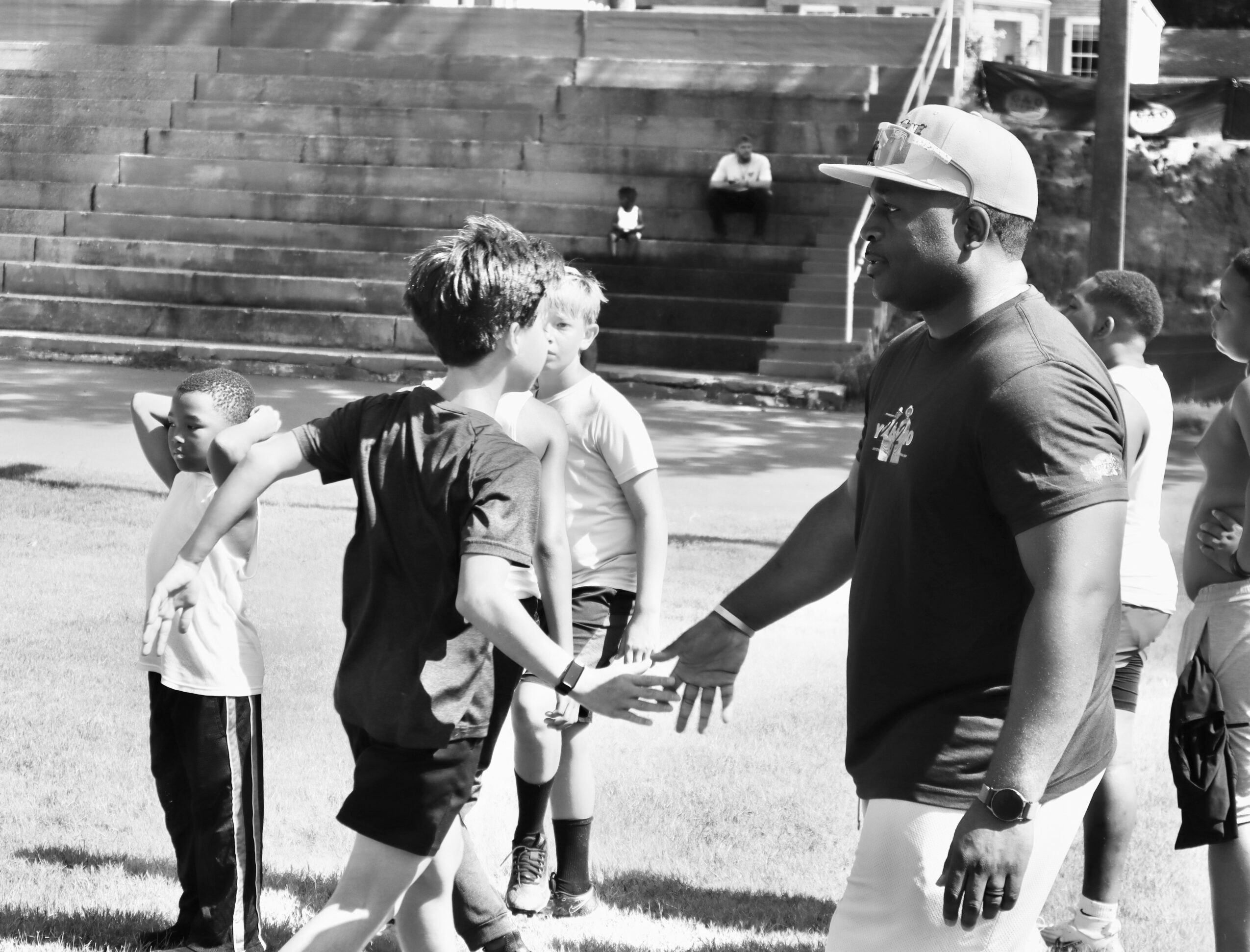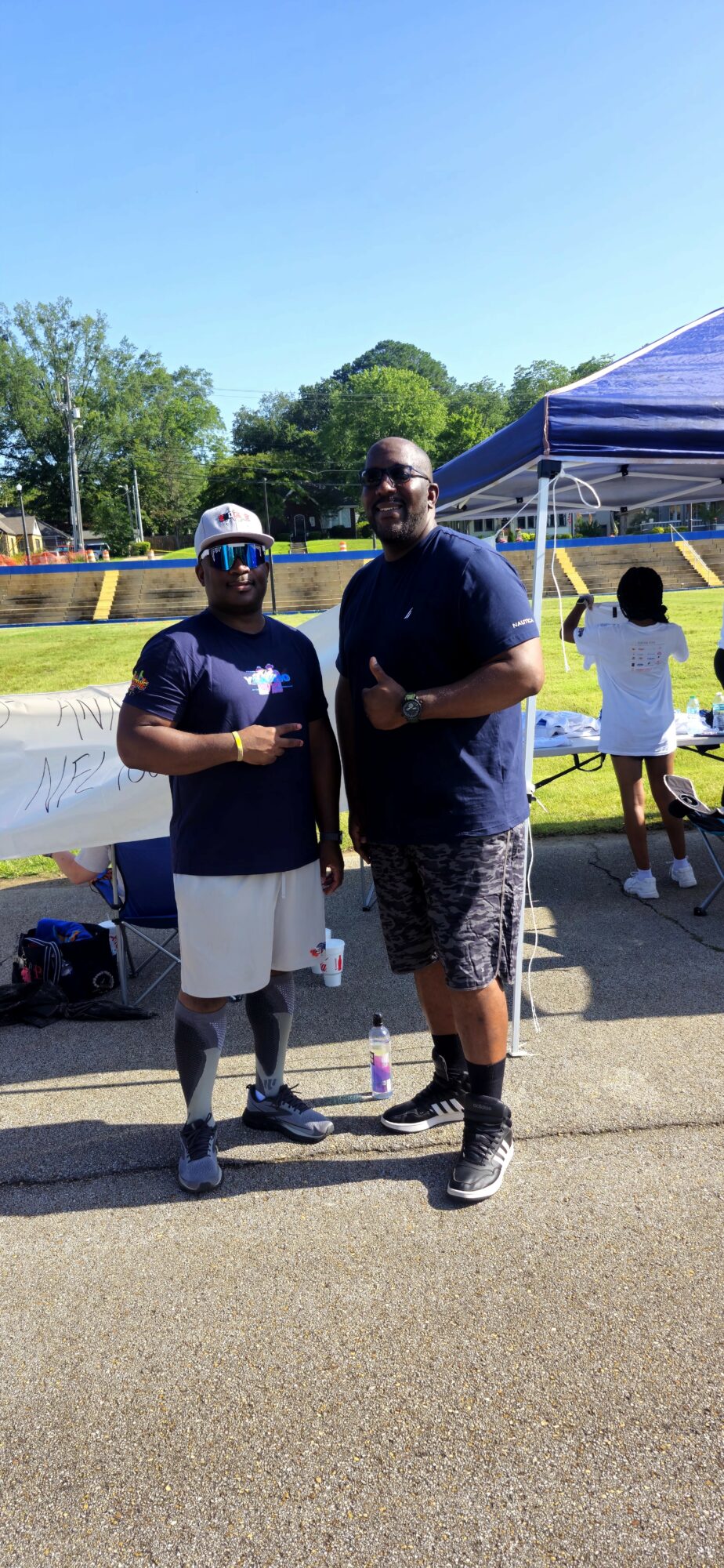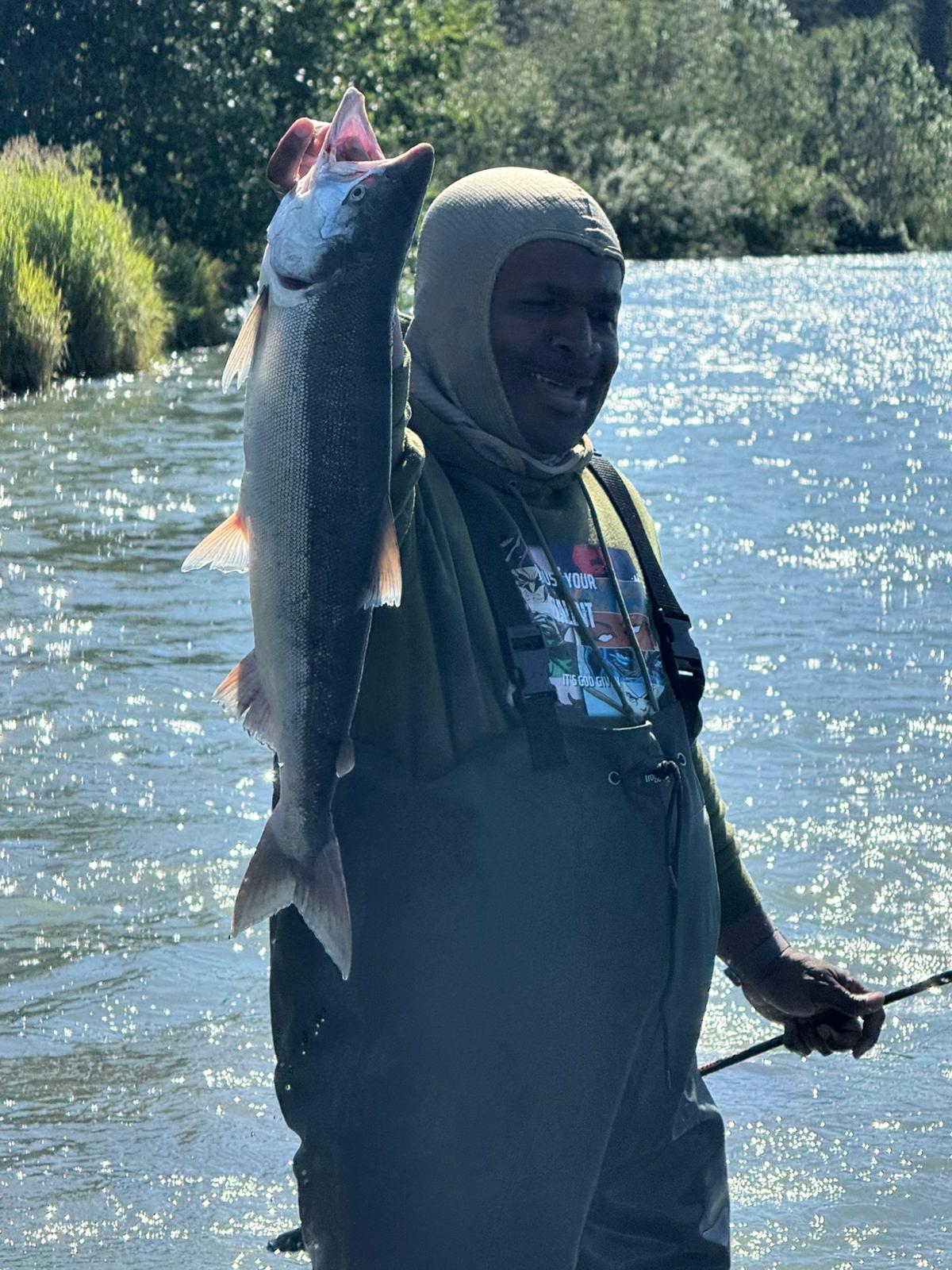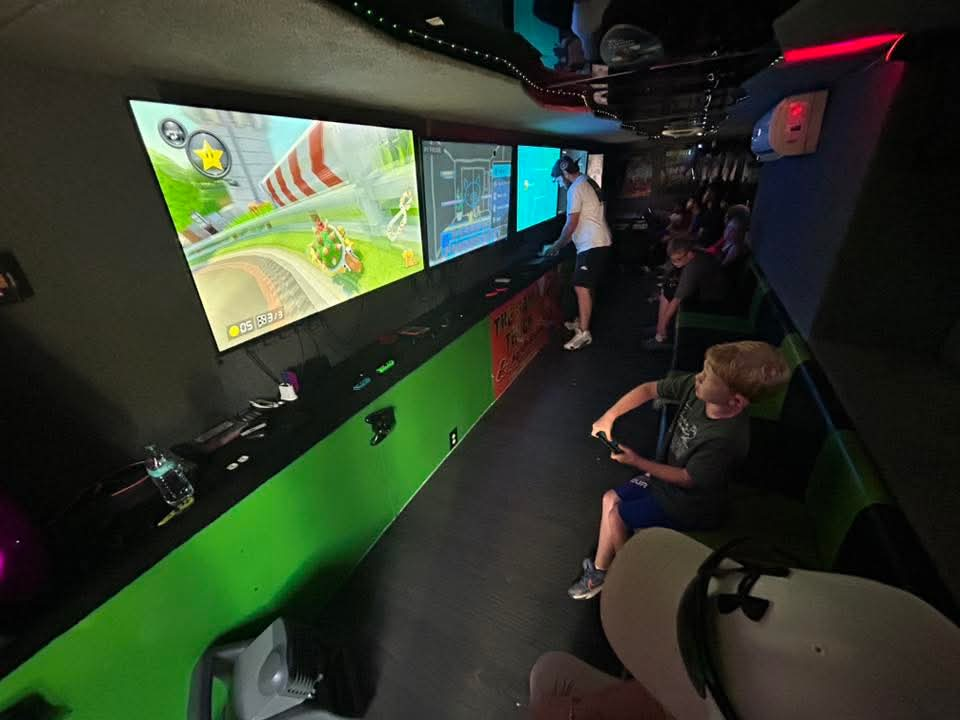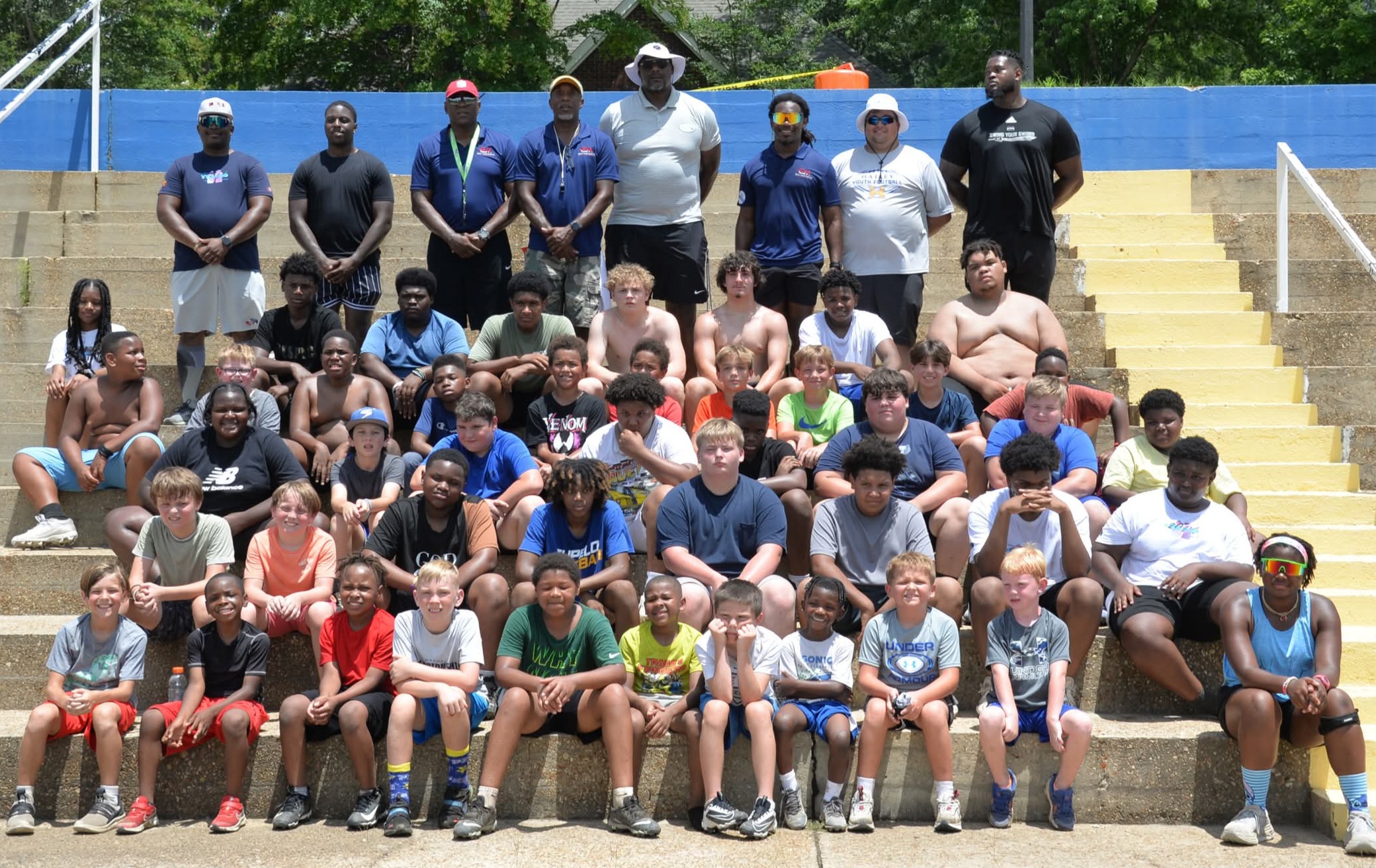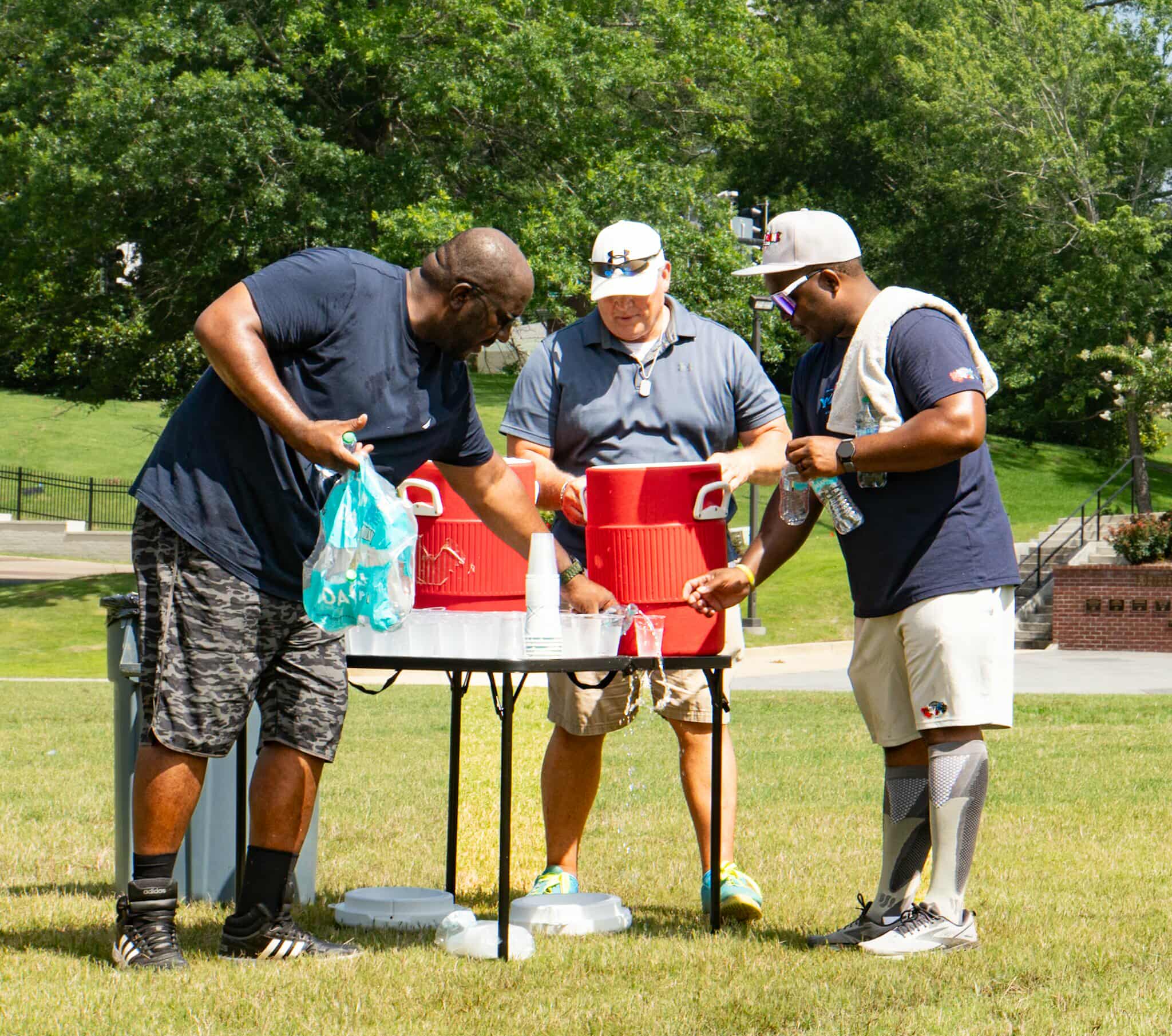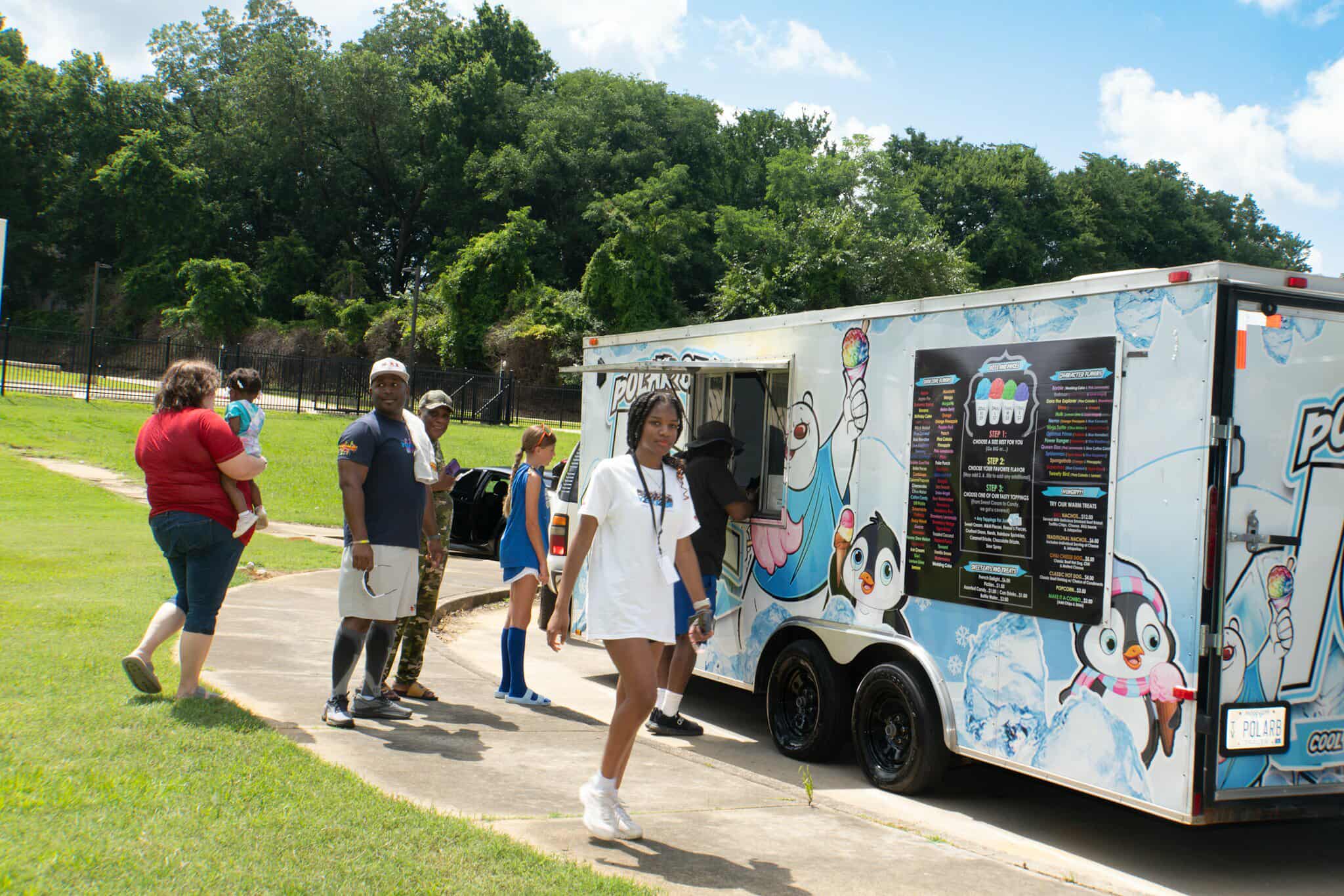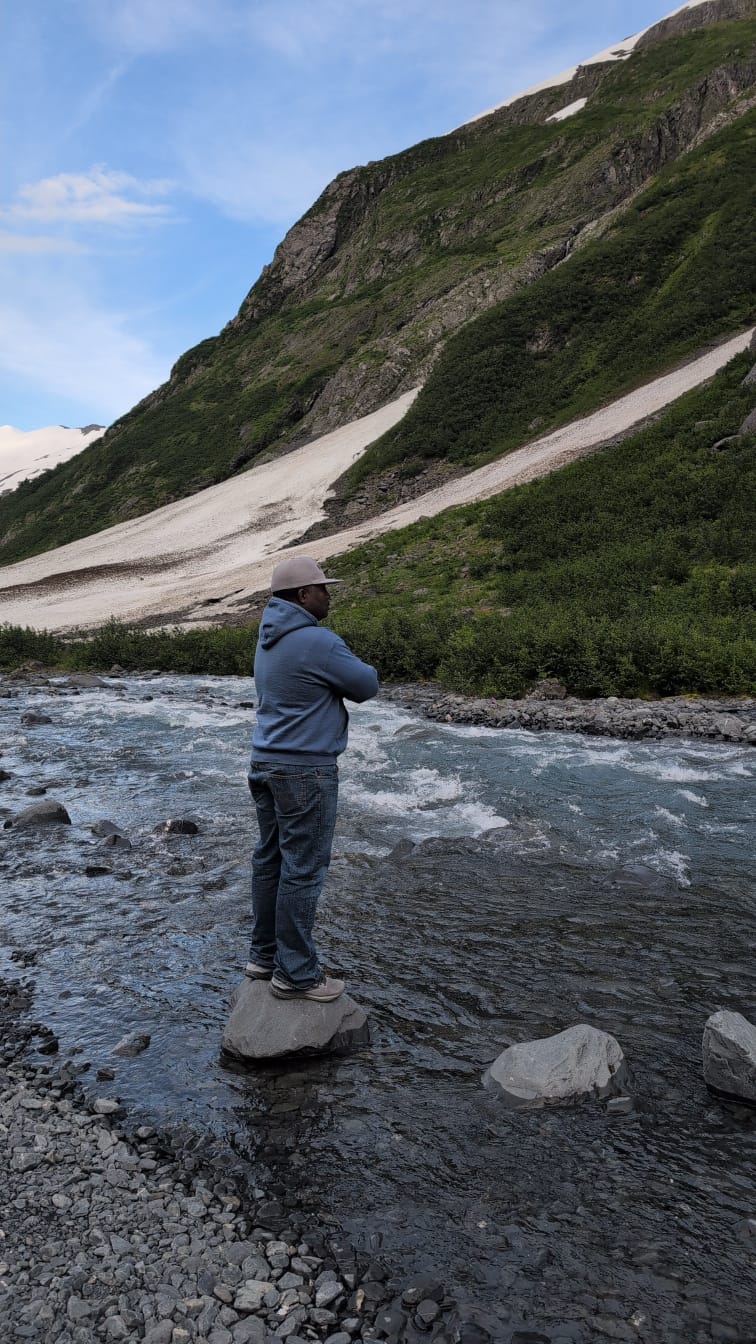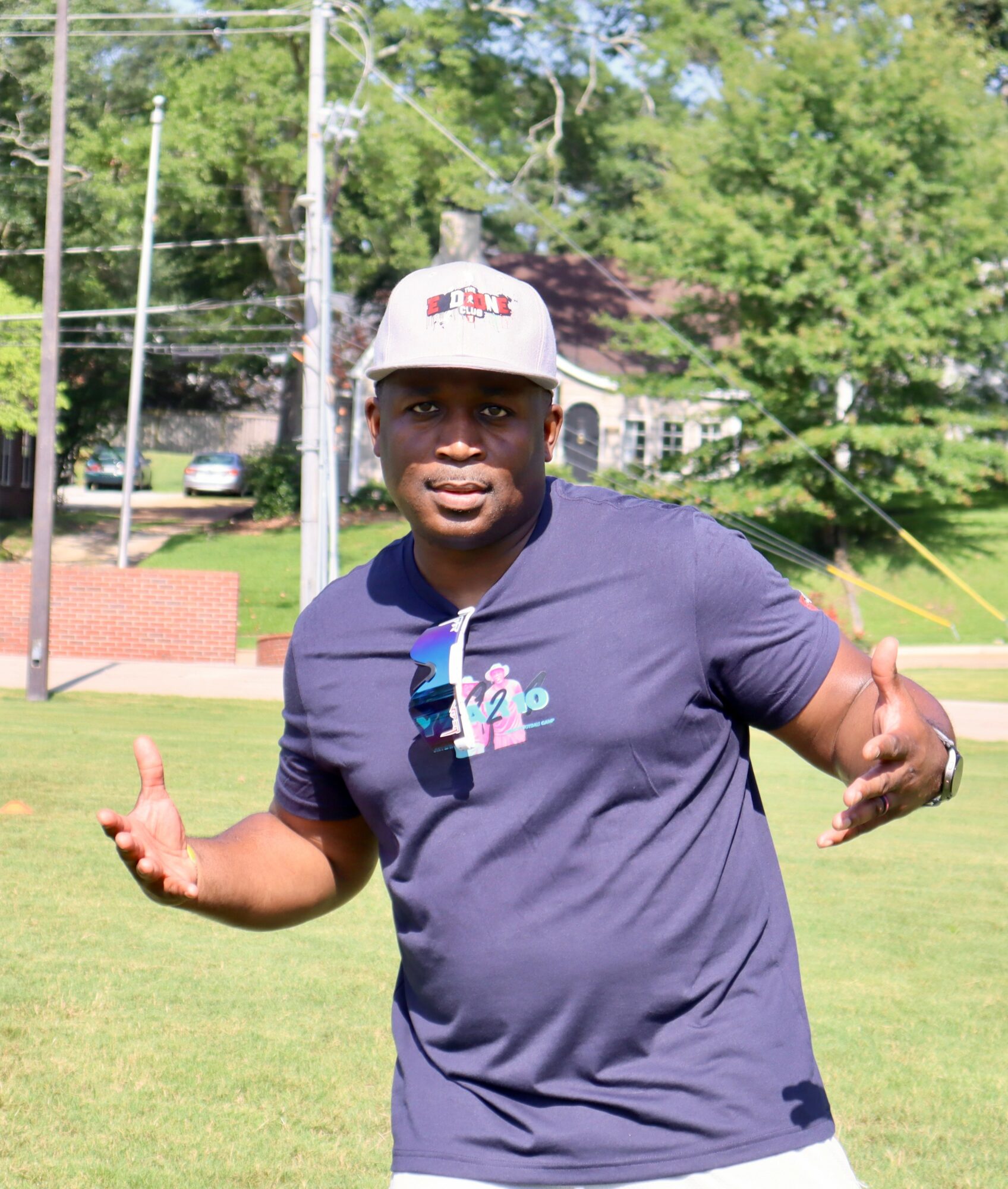

Anthony Mitchell Jr shared their story and experiences with us recently and you can find our conversation below.
Hi Anthony, thank you for taking the time to reflect back on your journey with us. I think our readers are in for a real treat. There is so much we can all learn from each other and so thank you again for opening up with us. Let’s get into it: What is a normal day like for you right now?
Right now, a normal day for me usually means juggling a lot of hats.
I’m balancing my military duties as a Tech Sergeant with running The Endzone Club, planning events, connecting with athletes, and working on community outreach projects. Somewhere in between, I’m a husband and dad, so family time with Tesha and Portland is a big priority.
Most days start early (3:45 a.m.) with work commitments, meetings, or training. Others are packed with calls, sponsorship talks, or podcast recording. By evening, I’m either at an event, coaching, or brainstorming the next big thing we can do for our youth. It’s busy, but it’s purposeful—and that’s what keeps me going.
Can you briefly introduce yourself and share what makes you or your brand unique?
I’m Anthony Mitchell, Tech Sergeant in the U.S. Air Force, community leader, and founder of The Endzone Club—a youth outreach organization that helps young people unlock their purpose by discovering their potential.
Our brand is built on combining sports, mentorship, and life skills to create positive, lasting impact. We host major events year-round—like our NFL Youth Camp, basketball clinics, holiday drives, and community festivals—while also offering weekly empowerment sessions. What makes us unique is the way we merge athletic excellence with personal growth, connecting kids with NFL alumni, college athletes, and community role models who genuinely invest in their lives.
My story is rooted in service—both in uniform and in the community. Whether I’m on base, behind a podcast mic, or on a football field, my mission is the same: inspire, equip, and encourage the next generation to live with purpose. Right now, we’re working on expanding our reach, building stronger partnerships, and creating even more opportunities for youth across the Southeast.
Okay, so here’s a deep one: What’s a moment that really shaped how you see the world?
Going into my senior year of high school, my classmate and neighbor, Raynard A. Johnson, was found unalived under circumstances that many believe were racially motivated. Losing someone so young, gifted, and full of potential shook me deeply. It made me realize how fragile life can be and how unjust the world can sometimes feel. That moment planted a fire in me—a passion to help every child I encounter have the chance to reach their potential, no matter their background, and to make sure their story has the opportunity to be written in full.
What fear has held you back the most in your life?
My biggest fear has been rejection—worrying that I wouldn’t be accepted because I’m different. Growing up with feelings of being less than attractive and socially awkward made me hyperaware of how others might perceive me. That fear has shaped a lot of how I move in the world: it’s pushed me to work harder, but it’s also made it harder to trust people fully. Deep down, I’ve often battled the thought that most relationships will eventually end with people seeing me in a negative light. It’s a constant tension—between wanting to connect and bracing myself for the possibility of being misunderstood or dismissed.
So a lot of these questions go deep, but if you are open to it, we’ve got a few more questions that we’d love to get your take on. What are the biggest lies your industry tells itself?
I think the biggest lie my industry tells itself is the idea that you can just “pull yourself up by your bootstraps” or that working hard automatically guarantees success. The truth I’ve come to see is that most industries run more on buddy systems than pure qualifications. “Who” you know often outweighs “what” you can do. Connections, networks, and politics shape opportunities far more than people like to admit. Success isn’t just about effort—it’s about navigating a system that’s highly relational and, in many ways, highly political.
Okay, we’ve made it essentially to the end. One last question before you go. What do you think people will most misunderstand about your legacy?
I think the biggest misunderstanding about my legacy might be that people will see the highlights—the events, the partnerships, the awards—and assume it was all smooth, strategic, and perfectly planned. In reality, much of what I’ve built has come from seasons of struggle, self-doubt, and learning as I go.
Some might think my drive is about recognition, when in truth it’s about responsibility—about making sure the opportunities I didn’t always have are there for the next generation. My legacy isn’t about me being the star of the story; it’s about using my platform so others can step into theirs.
Contact Info:
- Website: https://www.the-endzone-club.com
- Facebook: https://www.facebook.com/thorenpark
